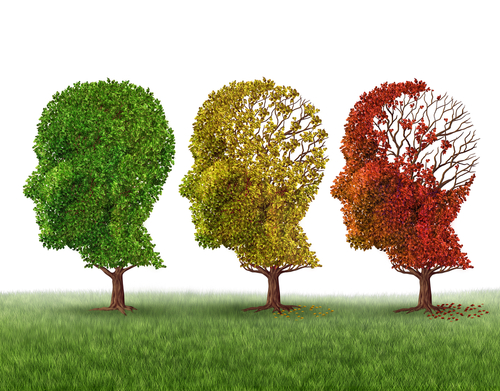Problems with Behavior and Thinking Skills Evident in ALS Patients and Progress with Disease, UK Study Says

Amyotrophic lateral sclerosis’ toll on the thinking abilities and behavior of patients is as progressive and damaging as the disease’s physical toll, researchers in the U.K. report, with ALS-specific cognitive and behavioral deficits showing an impact even in early stages and worsening as the disease advances.
ALS is characterized by the loss of nerve cells that control movement (motor neurons), with non-motor symptoms, such as cognitive and behavioral changes, reported to affect about 35% of all patients and frontotemporal dementia about 15%.
In the study “ALS-specific cognitive and behavior changes associated with advancing disease stage in ALS,” published in the journal Neurology, researchers set out to determine if changes in cognitive skills and behavior matched changes in disease stages.
Their study enrolled 161 ALS patients across three research centers in Edinburgh, Dublin, and London between 2014 and 2016, and 80 healthy volunteers. Most of the ALS patients, 88.8% or 143 people, were diagnosed within the past 12 months. Disease stage was determined based on King’s Clinical Staging System, which is based on body regions affected by the disease. In total, 40 patients were determined to be stage 1 (upper limbs), 45 as stage 2 (upper and lower limbs), 22 as stage 3 (upper limbs, lower limbs, and bulbar) and 54 stage 4 (respiratory).
Cognitive performance, measured by the Edinburgh Cognitive and Behavioural ALS Screen (ECAS) score, revealed significant differences between the two groups. ALS patients scored more poorly across four ECAS domains — language, executive function (high-level processes that allow for planning, attention, etc.), letter fluency, and memory — than did the volunteers. No major differences were reported for the fifth domain, visuospatial functioning (depth and distance perception, etc.).
In general, 27% of patients were found to have cognitive impairment according to the ECAS ALS-specific score and 19.4% based on ECAS ALS-nonspecific score.
Problems with letter fluency was the most common impairment reported (30.4% of patients), followed by executive skills (22.5%), and language (21.3%). Memory difficulties were evident in 16.8% of patients, and visuospatial impairment 9.4%.
The researchers also found that about 55% of patients showed at least one behavioral feature, and 39.6% would be classified as having behavioral impairment according to the revised consensus guidelines. Apathy was the most common, found in 30.9% of patients, followed by loss of sympathy or empathy (27.5%), changes in eating behaviors (24.8%), perseveration (repetitive speech or gestures, 24.8%), and disinhibition (15.4%).
When the team analyzed these features based on disease stage, they found progression matched by greater declines in cognitive ability for ALS-specific functions and greater numbers of behavioral problems in patients.
“Our findings demonstrated that cognitive domains that are typically affected in ALS (ALS-specific), the ECAS total performance, and the number of reported behavioral features are significantly related to King’s clinical disease stages. Conversely, no such association was observed for cognitive functions not typically affected by ALS (i.e., memory and visuospatial functioning),” the researchers wrote.
At early disease stages (stage 1 and 2) about 20–21% of patients presented cognitive impairments, and 33% of those at stage 3. Likewise, behavioral problems were evident in 18% of patients at stage 1, 27% at stage 2, 36% at stage 3. At stage 4, the most advanced stage, only 19.6% of patients were found to be free of behavioral and cognitive impairments.
“Unfortunately, we found that people with ALS have problems with thinking skills as well as behavioral problems such as apathy, changes in eating behaviors and lack of inhibition even at the earliest stages of the disease,” Sharon Abrahams, a professor at the University of Edinburgh and the study’s senior author, said in a press release.
The study noted “a relationship between ALS-specific cognitive and behavioral change and King’s clinical disease stage” that researchers suggested was “additional evidence of spread of degenerative processes in the [patients’] prefrontal cortices.’
Further analysis showed neuropsychological impairment to be more likely in patients with higher levels of depression and anxiety, lower functional scores, and in those with fewer years of education. Significantly worse cognitive and behavior scores were found among the 22 patients with bulbar (affecting speech and swallowing) involvement.
Supported by these findings, the team suggests that “measures of cognitive and behavioral change should be included in the diagnostic criteria for ALS,” as well as “in future staging systems.”
“People with ALS and their caregivers should also be informed that changes in thinking skills and behavior can be a part of ALS so they can plan for and watch for these issues and know that they are related to the disease itself,” Abrahams said.






